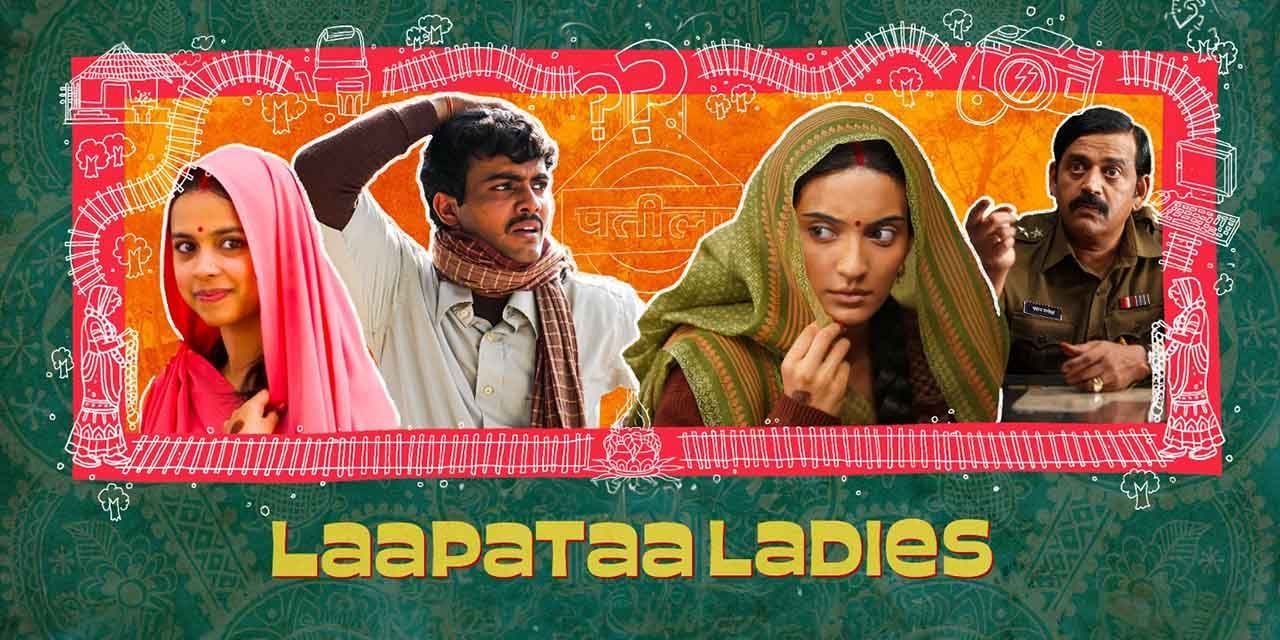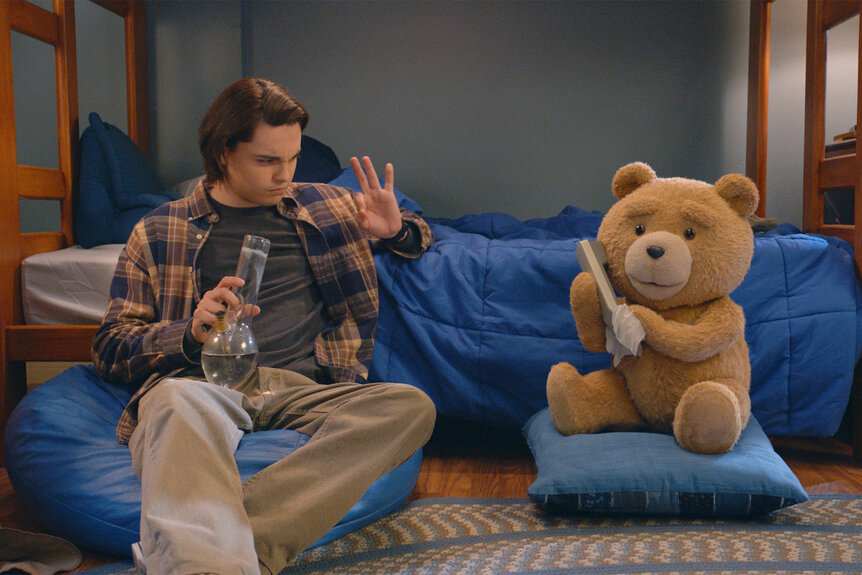Written by Vaishnavi Tripathi
Interweaving reality with a pinch of softness, Kiran Rao delivered the story of patriarchy and women, and presented us with the reality that most of us conveniently choose to ignore in her comeback film. ‘Lapataa Ladies’ on Netflix, set in the pretext of the made-up town Nirmal Pradesh in 2001, starts with the marriage of Deepak and Phool and follows the hilarious events of brides’ mix-up, getting the story kick-started.
Laapataa Ladies is a canvas of women’s dreams and aspirations, showing the duality of society by exchanging the identities of these two young women (quite literally). The film’s message is as simple and direct as it can get: let women live. And the rest of the story simply shows how that’s the one thing society is dominantly against, adding the minute and inconsequential actions and moments in the narratives, jolts the audience to think. Are we ever going to be free of this narrative rooted in our bones?
The simplest things and threads pulled together showed how hard it is to be a woman in this society, which binds their freedom with the thread of culture and stamps it to death with marriages, sacrifices, and everything it takes to groom a girl into becoming a perfect ‘woman’. My favourite example of it was the moment when Phool, cooking for Manju and herself in her kitchen, responds to her question if she’s comparable with cooking in a strange kitchen with “yahi kaam ke liye toh maa ne bada kiya hain” that one line explained everything that was needed to the audience.

‘Phool’ finding herself on a random station between strange faces and finding her survival through it all, learning basic human skills for once and shedding the ‘perfect values’ taught to her by her family or ‘Pushpa’ lying and navigating her life to find her own independence and career amidst the shackles of society.
Showcasing the sacrifices of being a woman in the smallest things, the scene where the mother laughed at Pushpa, “toh ka abb aurto ki pasand ka khana banega?” or the flashback scene where Pushpa’s mother lashed out at her “toh bhagya tumhara”. The writers did a great job at striking all the right chords because almost every woman fighting for her dreams amidst the patriarchy has at least once heard this among so many other things. This movie felt like caramel ice cream on a warm Sunday afternoon. Talking about the simplest actions and presenting it so beautifully to the audience, delicately balancing the humour and the harsh reality all together. Watching this satire felt like a jab in all the right places.
Lapataa Ladies didn’t just address the issues but gave a sweet solution within itself too. Watching Deepak was a breath of fresh air among the mass of alpha characters or ‘Reddy’s’ characters that crowded our screen this past year. Deepak was the ray of sun that kept it all together when everything was falling apart, his love towards Phool, duty towards Pushpa, the devotion, and innate softness that he let on our screens left everyone rooting for him.
The men in this movie felt like a direct answer to everything Bollywood has been producing for the past few years, they felt real and simple. They didn’t feel like a fantasy of a frustrated man, but more of a woman’s idea of what a man should be, what a man actually is. This movie that started with humor as a screen breaker, left the audience questioning themselves, tying everything together at the end with the police inspector (Ravi Kishan) navigating a loophole in the system (yet again) this time for something good and stealing the spotlight, with Phool finding the right train and the right station. Laapata Ladies leaves you with a smile by the end, with the beautiful station reunion or the melodious rendition of ‘Sajini’ playing in the background, it leaves a sweet aftertaste just like that Kalakund Phool made.
With the beautiful ‘Dheeme Dheeme’ playing in the background as the credits rolled down, the movie wraps up leaving you questioning and smiling. It leaves you with a hope of something good, Lapataa Ladies was a brilliant satire packed with excellent sass and punchlines that landed perfectly. The joke of the movie wasn’t the situation or the jabs, it was us. The joke was us, and that thought alone is enough to prove the power of the right messaging and a well-made movie.




